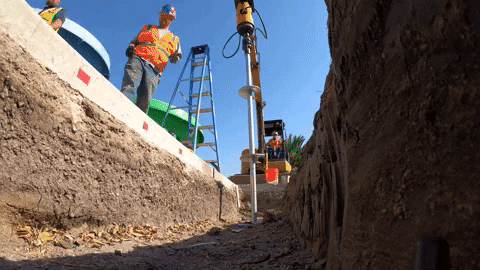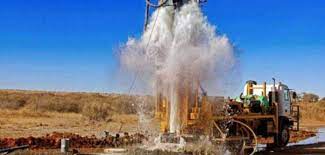Borehole Drilling in Cameroon
How it works
a hydrogeologist will first need to visit the intended borehole site and assess its geophysical properties. They will identify where the water is located and how it can be reached.
the water borehole will then be drilled in line with the hydrogeologist’s recommendations, and subsequently cased with steel, stainless steel, PVC or a combination of all of them.
a test pump will then be installed, and the borehole will be tested on a range of variables. This will determine the impact of certain controlled changes on the overall borehole water level.
finally, an appropriate pumping and piping system will be installed into the borehole.

Water
borehole drilling is becoming an increasingly popular option amongst site managers and
savvy property owners. It may not be something that you have considered before. However, if you
need access to a fresh and reliable supply of water, it could be the ideal solution for you.
It gives you your own private supply of water, meaning you no longer have to rely on other sources.
This has proven especially useful for those who use a lot of water for business, as they can always
depend on their water borehole to provide them with a quality source of water that they can use all year
round, no matter what the conditions may be.
The rise in popularity of the benefits of water drilling has brought new eyes to the process, as many now
look to have their own source of water that is exclusive to their facilities.

Water borehole drilling
(or water well drilling), essentially, involves drilling a hole into the
ground to access the water that lies beneath. Once the hole has been drilled, it is cased with
steel and a borehole pumping system is typically added to collect the natural water and pump it
to the surface.